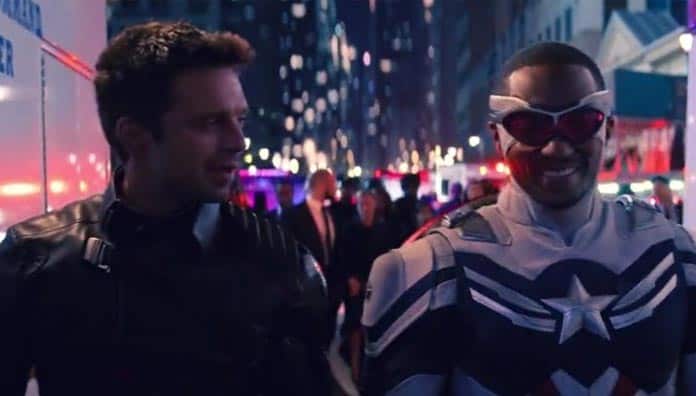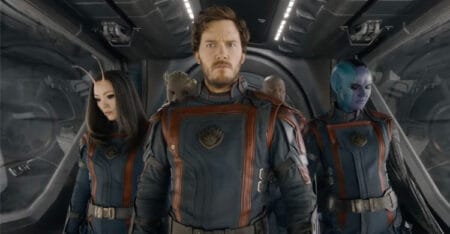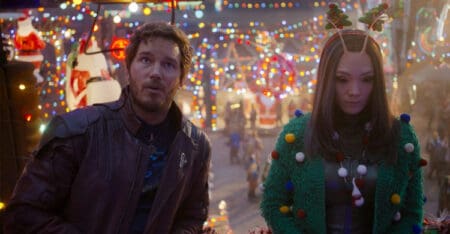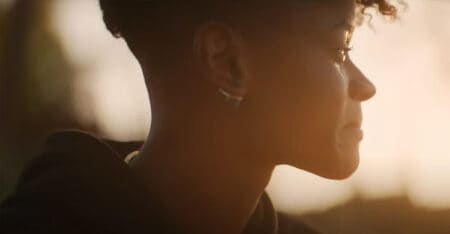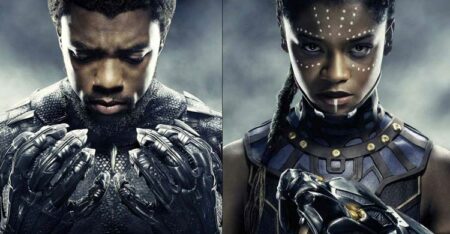Sam “Falcon” Wilson and Bucky “Winter Soldier” Barnes always seemed to just be tag-a-longing sidekicks for Captain America adventures. We’ve seen them in a handful of movies but never get to fully understand their mostly glazed over fears and concerns. The Falcon and the Winter Soldier miniseries such is the perfect chance to flesh them out.
While The Falcon and the Winter Soldier certainly does expand on these characters, it also reveals the limitations of the MCU. There’s so much that this kind of writing wants to say about refugees, racism, and the dangerous depths of patriotism. Yet the show can never quite find the loud enough voice to bring teeth to a knee-capped action thriller.
Shields and Soldiers
Sam Wilson has an impressive arc of coming to terms with Steve Rogers passing him the Captain America shield. While it’s quite an honor, Sam has always felt as though he were in Cap’s shadow. It’s natural that he’d initially turn down such a request and bitterly continue on as the Falcon.
In his place, decorated soldier John Walker steps into the role of Captain America. Looking more the part as a blond-haired and blue-eyed white hero, John is more of a figurehead than a true hero. When working in the field, John’s brash nature also proves that he’s unfit to wield the shield, representing the worst aspects of America.
Bucky’s Plight
Meanwhile, Bucky Barnes is still trying to come to terms with having been a Hydra puppet. He is still haunted by his orchestrated assassinations and wants to make things right. Despite a solid opening episode of Bucky trying to make amends to the families he has damaged, his struggle seems mostly bookended.
What’s more immediate for both Sam and Bucky is dealing with the lack of Steve in their lives. Rogers was viewed as some wholesome icon of what it meant to be American. Both of them question whether they can meet such a societal standard but also, more importantly, if they want to.
Conflicted Villains
The mission Sam and Bucky are tasked with is stopping an international terrorist group known as the Flag-Smashers. The group bore from the five-year gap of half a population proceeding Thanos’s snap (or blip as the series refers to the event). They believe the world was better before as it meant fewer borders and restrictions for refugees.
The Flag Smashers are portrayed as desperate and with a strong cause for their violent actions. Similar to the antagonist of Black Panther, they are posed as sympathetic villains. This means will their goals will mostly be recognized but also their actions condemned.
The Falcon and the Winter Soldier’s Real Villain
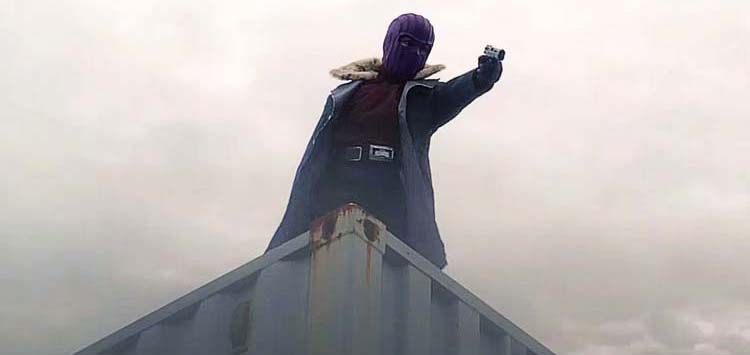
The true villain of The Falcon and the Winter Soldier series, however, is clearly Zemo. The foiled Hydra operative is busted out of prison to aid in the mission of tracking down the Flag Smashers. He’s considered useful for the group using a new form of the Super Soldier serum.
In the same way that he was successful during Civil War, Zemo’s evil schemes mostly rely on supplying rope to the manipulated. There’s a brilliant moment Zemo pours himself a drink while Wakandan warriors fight Sam and Bucky for taking Zemo back into custody. He still knows how to play the heroes like a fiddle.
Questioning America
The series tries to lean heavier into the systemic oppression of America and questioning its influence. Sadly, the show never has the guts to be fully explicit with such a topic. Most of Sam’s encounters with racism are portrayed almost too allegorically with scenes of confronting loan officers and police with nary a scuffle of the saying the big part loud.
There are a handful of scenes, however, that better articulate this theme that weighs on Sam’s mind. He speaks with former Super Soldier test subject Isaiah Bradley who speaks bitterly about he was not given the same treatment as Captain America. Isaiah’s imprisonment for 30 years has made him recognize that not only will a black Captain America not be accepted but that perhaps a black man should never be such a hero.
The Wrong Captain America
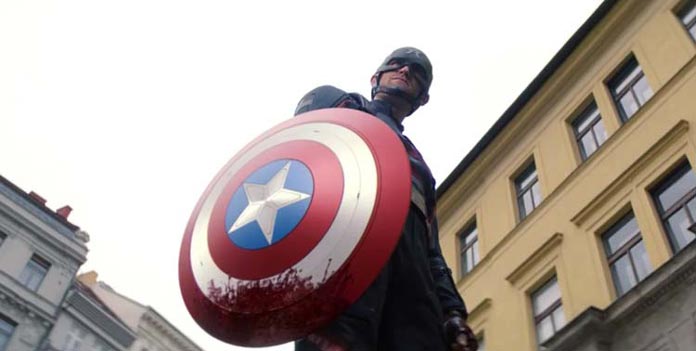
The one aspect that feels the most questioning of America’s faults is personified through John Walker. He represents an image that many would like to paint America but not the ethics of justice embraced by Steve. He can look the part but can’t play it.
It becomes pretty clear that he won’t remain as Captain America given his egotism and gung-ho nature when it comes to American imperialism. This should become evident from The Falcon and the Winter Soldier episode 2 but by episode 4 there’s no denying his disgracing of the shield. Using Cap’s shield to brutally murder an unarmed terrorist goes against everything Steve stood for.
A Buddy in Bucky
One of the best scenes in the series features Sam and Bucky tossing around Cap’s shield for practice. They talk about how they’ve changed since Steve has been gone. They also talk about issues Steve might not have been prepared to address.
This scene is remarkable for two reasons. The first is that it’s a genuinely surprising moment in a buddy-action series where the two leads are not just joking but being honest and open with their emotions and thoughts. The second is that it’s a great observation on aspects of representing such a role as an American hero beyond stopping fascists and aliens.
A Tangled Thriller
The show would perhaps be far more admirable if it didn’t toss up so many themes and try to juggle them over the course of six episodes. We get aspects of systemic racism, American interventionism, corrupt politicians, refugee issues, and border disputes. But rarely do any of these themes get enough breathing room to be anything more than mere ingredients.
So little time is spent exploring these topics that most of them are an uncomfortable wrap by the climactic monologue. It’s a decent bit of dialogue as Sam calls of the political elite for not recognizing the plight of refugees. However, there’s a whole lot more that gets wrapped into this speech. The epilogue doesn’t smooth out as much as it thinks, leaving too much to linger and so much unsaid.
Final Thoughts
The Falcon and the Winter Soldier does hold up better than WandaVision in terms of questioning the morality of its heroes and villains. There’s a lot of gray areas colored in to make the show a capable political thriller. It also leaves a few areas peculiarly blank.
For its action, sure, there are some exciting sequences of Falcon soaring and the Winter Soldier slamming his fists into bad guys. But this series merely showcases the limits of just how far an MCU series can go. I doubt we’ll ever see a dose of Marvel media ever go further than The Falcon and the Winter Soldier when addressing international politics.

